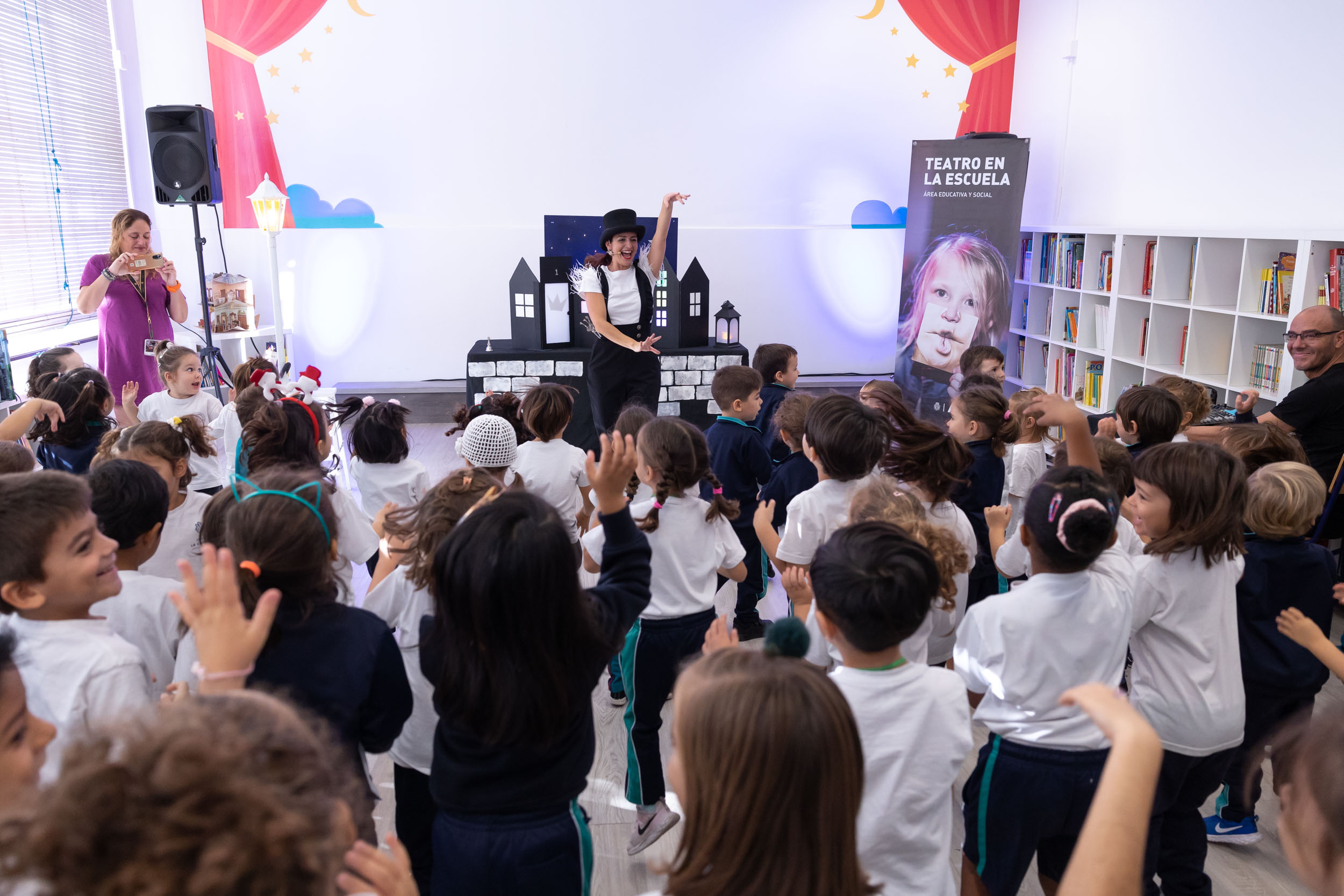The Educational and Social Area of Auditorio de Tenerife benefitted 29,875 people this season

Participation in proposals is double that of last year
In the season that has just ended, the Educational and Social Area of the Auditorio de Tenerife benefitted 29,875 people. This figure means an increase of 118 percent compared to that recorded last year in terms of participation in the activities carried out by this project which involves the departments of Culture and Education of the Island Council of Tenerife. Shows for schools and social centres, classroom performances, teaching guides, educational resources, mediation actions and guided visits adapted to the levels or syllabus structured the proposal, which took place from October 2022 to June 2023.
The educational concerts and shows offered to the schools and social centres on the island which take place at the Auditorio de Tenerife amounted to a total of 22 performances, attaining 13,492 attendees. They notably include the performances of the Symphony Orchestra (Al son de Cervantes for Nursey, The firebird for Primary and Pictures at an exhibition for Secondary school pupils), and the family title that the Opera of Tenerife programmes each year (The little sweep, by Benjamin Britten).
The Teatro en la Escuela (Theatre at School) programme consists of a public call for entries for theatre and dance companies, and musical groups. 14 Shows were included this year, divided according to educational level, which were offered this year to schools and social centres on the island in order for them to make applications to host one of them in their classrooms. In total, 189 performances took place in 116 centres across 26 municipalities on the island, which were enjoyed by 14,789 spectators.
The Escuelas de Teatro (Theatre Schools) programme spread around 11 municipalities on the island, in 27 groups divided according to age, providing classes to a total of 255 pupils. On the other hand, Teatro Aficionado (Amateur Theatre), which promotes this art among cultural associations, brought together 114 participants from the ten groups registered.
Under the slogan Sensación sentida (A felt sense), Danza en Comunidad (Dance in the Community) implemented three programmes: Training of trainers for Creation and Wellbeing, Research residencies and Transversal rapporteur. The programme worked with seven groups (those enrolled in Training of Trainers, the groups of the secondary schools IES Puntalarga and IES Las Galletas, the Higher Conservatoire of Music, Doctors of the World, the Orobal Parents’ Association and the Penitentiary Facility), which had 310 participants.
This season marked the launch of the educational guided visits, a cross-disciplinary educational activity that consists of carrying out a process of training and informing the public during school hours. It is meant for all levels and aims to give rise to autonomous and critical students. It involves a guided visit to the building and a series of workshops adapted to the different educational levels in a specific classroom for this audience, which reached 925 pupils.
Mediation activities were also carried out with pupils from the island and with groups such as the ONCE Foundation. Likewise, the second Teaching communication for music workshop took place, with twenty people enrolled, it featured Mikel Cañada and included the roundtable discussion ¿Las barreras son franqueables? (Is it possible to overcome barriers?) with representatives from public, private, and artistic entities.
The department is associated with RESEO European Network for Opera, Dance and Music Education and the Spanish Network of Organisers of Educational Concerts (ROCE), which it is an active part of.
The Educational and Social Department of the Auditorio de Tenerife aims to bring the arts and creative processes to all citizens, with a particular focus on school pupils and people at risk of social exclusion. One of its objectives is to nurture the relationship between artistic and cultural activities with the way in which they are conveyed to society and to encourage space for building a relationship between art and people. Its main idea is for art to make an unquestionable contribution to social wellbeing, the recognition of individual and collective identity, as well as training and the use of critical thinking needed for mature democratic social coexistence.


